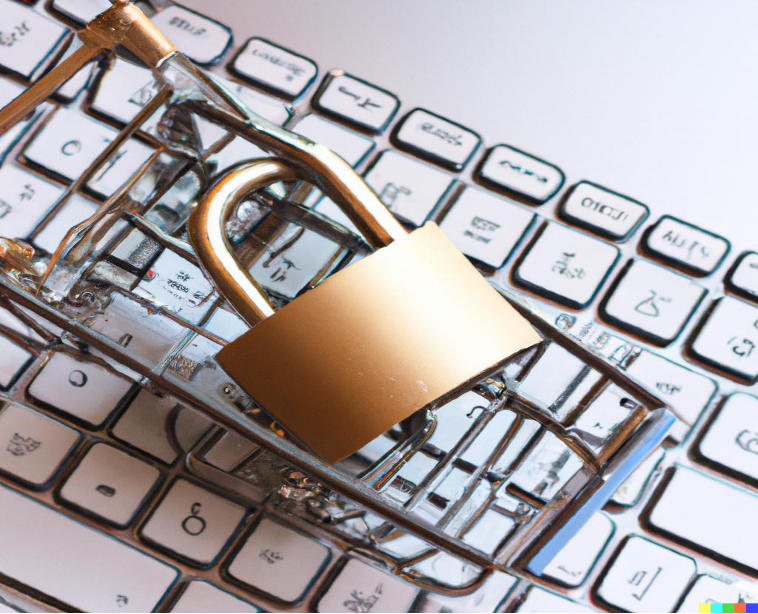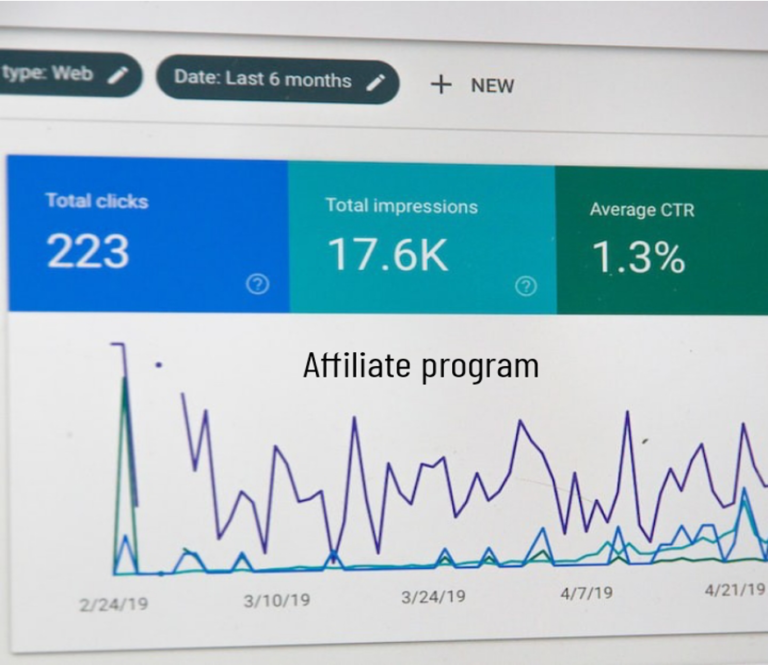Over time, e-commerce platforms have gained popularity in Nigeria. As the digital age progresses, more and more individuals are turning to online buying and selling as a practical means of conducting business. However, there are possible security dangers involved, just like with every online transaction. E-commerce platforms are websites or mobile apps that let people and companies conduct online transactions for the purchase and sale of goods and services. There are many well-known e-commerce sites in Nigeria, including Jumia, Clinetrust, Konga, and Jiji. From electronics to clothing and home appliances, these platforms provide a wide range of goods and services.
Importance of Security Measures for safe buying and selling on E-commerce platforms
E-commerce platforms provide accessibility and convenience, but they also could be risky for both customers and merchants. They are not an exception to the fact that cybercriminals are constantly searching for weak targets to exploit. Phishing schemes, bogus websites, and identity theft are some of the frequent security risks connected to e-commerce platforms. It is essential to take security precautions seriously if Nigeria wants to assure secure purchasing and selling on e-commerce platforms. This include creating secure passwords, protecting personal data, and confirming the legitimacy of the site and the seller. Failure to do so may have major implications, including money loss, identity theft, and other issues.
Security Measures for Safe Buying and Selling on E-Commerce Platforms in Nigeria
Particularly with the start of the COVID-19 pandemic, e-commerce platforms have gained popularity in Nigeria as a means of doing business transactions. But while there are more online buyers and sellers, there are also more unscrupulous practices and con games that prey on gullible people. Users of e-commerce platforms in Nigeria must therefore be aware of these scams and the security precautions they can take to avoid becoming victims of them. In this blog post, we’ll look at some typical e-commerce fraud and scams as well as preventative steps you can take.
Common E-commerce Scams and Fraudulent Activities

Fake and Duplicate Websites
The construction of phony or duplicate websites is one of the most prevalent e-commerce scams. Scammers frequently design websites that closely resemble authentic e-commerce platforms in an effort to deceive unwary victims into disclosing their personal and financial information. It is crucial to make sure that you are only visiting reliable websites if you want to prevent falling for this kind of fraud. Making ensuring the URL matches the address of the official website is one approach to achieve this. Additionally, always check the URL bar for the padlock icon, which denotes a safe website.
Phishing Scams
Another frequent form of e-commerce fraud is phishing, in which scammers send unsolicited emails or text messages that appear to be from a reliable e-commerce platform and ask the victim for personal or financial information. To avoid becoming a victim of phishing scams, be cautious whenever you receive unsolicited emails or texts, and make sure the sender’s email address or phone number corresponds with the official contact information for the company.
Identity Theft
Identity theft is a prevalent type of e-commerce fraud in which scammers steal personal information such as names, addresses, and credit card numbers. This information can then be used to make unauthorized purchases or commit other types of fraud. To protect yourself from identity theft, ensure that you are only sharing personal information on secure websites that use encryption. Additionally, regularly monitor your credit reports and financial statements to detect any unauthorized activity.
Payment Fraud
Payment fraud is another common type of e-commerce scam that involves fraudulent transactions using stolen credit card information. To avoid falling victim to this type of scam, only use secure payment methods such as credit cards with fraud protection or trusted third-party payment services like PayPal. Additionally, always review your credit card statements carefully to detect any unauthorized charges.
Account Hijacking
Account hijacking involves fraudsters gaining access to a victim’s e-commerce account and using it to make unauthorized purchases or other fraudulent activities. To prevent account hijacking, always use strong passwords and enable two-factor authentication if possible. Additionally, regularly monitor your account activity to detect any suspicious activity.
Delivery Fraud
Finally, delivery fraud involves fraudsters posing as delivery agents and stealing packages or pretending to deliver packages that were never sent. To avoid falling victim to this type of scam, always track your packages and be cautious when receiving deliveries from unknown or suspicious sources.
The Best Security Practices That Buyers Can Adopt to Ensure Safe Buying and Selling on E-Commerce Platforms in Nigeria.

Use of Strong Passwords and Two-Factor Authentication
The first line of defense against cyber threats is the use of strong passwords and two-factor authentication. Buyers should always use strong passwords that are difficult to guess and avoid using the same password across multiple platforms. Two-factor authentication provides an additional layer of security by requiring a code or biometric authentication before granting access to an account. This helps to prevent unauthorized access to personal and financial information.
Verification of E-commerce Sites and Sellers
One of the essential security measures that buyers should take is to verify the legitimacy of e-commerce sites and sellers. This can be done by checking the site’s URL, customer reviews, and ratings, and verifying the seller’s contact information. Buyers should also be cautious of deals that seem too good to be true, as they may be scams.
Use of Secure Payment Options
Another critical security measure for buyers is the use of secure payment options. E-commerce platforms in Nigeria offer various payment options, including credit/debit cards, bank transfers, and online payment gateways e.g Flutterwave, Paystack, PayPal, Payoneer e.tc. Buyers should always opt for secure payment gateways that use encryption technology to protect financial information during transactions. It is advisable to avoid cash on delivery (COD) options as they can be risky.
Regular Check of Bank Statements and Credit Reports
To ensure that all transactions are legitimate and that there are no unauthorized charges, buyers should regularly check their bank statements and credit reports. This helps to detect any fraudulent activity early enough and take appropriate actions to address them.
Avoid Public Wi-Fi Networks for Sensitive Transactions
Public Wi-Fi networks are vulnerable to cyber-attacks, and buyers should avoid using them for sensitive transactions such as online purchases. Cybercriminals can intercept information transmitted through these networks, compromising personal and financial information.
Use of Virtual Private Networks (VPNs)
A Virtual Private Network (VPN) is a secure connection that allows buyers to access the internet privately and securely. Buyers should use VPNs when accessing e-commerce platforms from public Wi-Fi networks or unfamiliar locations. This provides an additional layer of security against cyber threats, ensuring that personal and financial information is protected.
Best Security Practices for Sellers On E-Commerce Platforms
Online marketplaces have revolutionized the way we buy and sell goods, and Nigeria is no exception. E-commerce platforms have opened up new opportunities for businesses to expand their customer base and reach a wider audience. However, with the benefits of online transactions come the risks of cybercrime. As a seller on an e-commerce platform, you need to take proactive measures to protect your business and customers from online fraud. Here are some best security practices to keep in mind:
Use of Escrow account
There are e-commerce platforms like clinetrust escrow features that serves as a middleman between the buyer and the seller. When a buyer and seller decide to utilize the escrow feature, the buyer transfers funds to the e-commerce platform rather than the seller. Until the buyer


receives the goods or services and certifies that it matches the description, the escrow agency retains the payment. The escrow provider transfers the money to the seller once the customer certifies that they are happy with the product or service.
The same goes for a product


Use of Secure Payment Options
One of the most important steps you can take to protect your business is to use secure payment options. There are several payment platforms available on e-commerce platforms that offer secure payment options, such as PayPal, Paystack, and Flutterwave. These payment platforms use encryption and other security features to protect your payment details and prevent fraud.
Verification of Buyer Information
It’s important to verify the identity of your buyers before completing a transaction. Many e-commerce platforms have built-in verification processes, such as email verification, phone verification, and ID verification. Make sure to use these features to confirm the identity of your buyers before shipping your products.
Avoiding Public Wi-Fi for Sensitive Transactions
Public Wi-Fi networks are often unsecured and can be easily intercepted by hackers. Avoid using public Wi-Fi networks for sensitive transactions, such as processing payments or accessing your business accounts. Instead, use a private Wi-Fi network or a virtual private network (VPN) to protect your data.
Use of Secure Delivery Options
In addition to securing your online transactions, it’s important to use secure delivery options for your products. Choose reputable courier services that offer tracking and delivery confirmation. This will help prevent fraud and ensure that your products are delivered safely and on time.
Use of Digital Signatures
Digital signatures are an effective way to verify the authenticity of a document or transaction. They provide a way to validate the identity of the signer and ensure that the document has not been tampered with. Use digital signatures to sign important documents, such as invoices, contracts, and shipping labels.
Regularly Monitor Transactions and Bank Statements
Finally, it’s important to regularly monitor your transactions and bank statements for any suspicious activity. Keep a record of all transactions and review them regularly to identify any unusual activity. If you notice any unauthorized transactions, report them immediately to your bank and the e-commerce platform.
The Role of E-Commerce Platforms in Ensuring Security

E-commerce has revolutionized the way people buy and sell products and services. With the increasing popularity of e-commerce in Nigeria, it is essential to ensure that transactions are secure to prevent fraud and protect users’ data. E-commerce platforms play a critical role in ensuring security, and in this article, we will explore the measures that these platforms can implement to ensure safe buying and selling.
Implementation of SSL Certificates
For e-commerce systems, Secure Socket Layer (SSL) certificates are a crucial security safeguard. They enable encrypted transmission of sensitive data, such as credit card numbers and personal information, between a user’s browser and the server of an e-commerce platform, preventing unauthorized parties from intercepting it. In order to secure their platforms, e-commerce platforms can use SSL certificates by collaborating with reliable SSL suppliers. Users will feel more secure knowing that their data is secure and guarded against cybercriminals as a result.
Regular Security Audits
E-commerce platforms should conduct regular security audits to identify vulnerabilities and prevent security breaches. Security audits can help identify weaknesses in the platform’s security infrastructure and recommend solutions to address them. Regular security audits can also help e-commerce platforms comply with data protection laws and regulations. This can help build trust with users, who are more likely to transact on platforms that take their security seriously.
Use of Advanced Encryption Technologies
In addition to SSL certificates, e-commerce platforms can also implement advanced encryption technologies to ensure that data is secure. Advanced encryption technologies like Transport Layer Security (TLS) can be used to secure data during transmission. E-commerce platforms can also implement encryption technologies like Advanced Encryption Standard (AES) to protect data at rest. This ensures that even if hackers gain access to the platform’s server, they cannot access users’ sensitive data.
Regular Education and Awareness Programs
E-commerce platforms can also instruct users on how to be safe when making purchases and making sales. Users can recognize potential security dangers and take precautions to protect themselves with the aid of regular education and awareness campaigns. These applications may offer advice on selecting secure passwords, identifying phishing scams, and reporting possible fraud. E-commerce platforms can assist in preventing security breaches brought on by user error by educating users.
Conclusion
In conclusion, security measures are critical for safe buying and selling on e-commerce platforms in Nigeria. E-commerce businesses must take a proactive approach to security, implementing technical measures and promoting security best practices among their staff and customers. Consumers also have a role to play in safeguarding their data and transactions by remaining vigilant and adopting safe online practices. By working together, we can ensure a safer and more secure e-commerce environment in Nigeria



